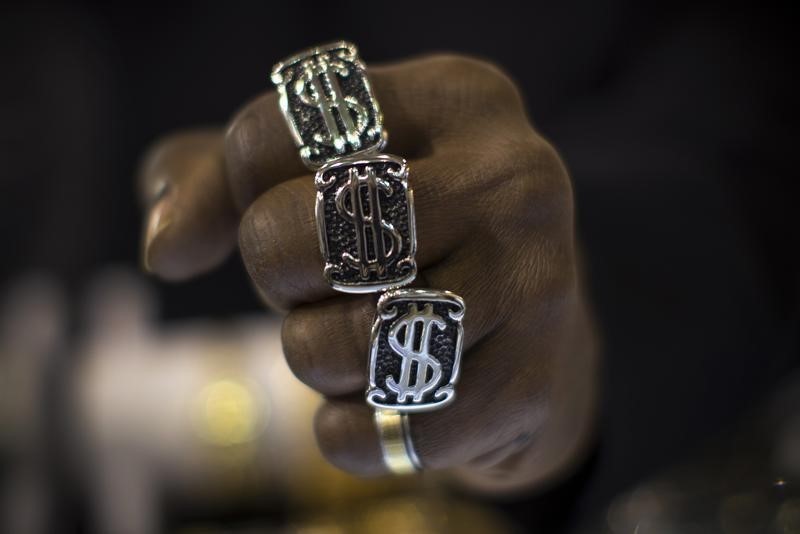By Simon Jessop, Maiya Keidan and Lawrence Delevingne
LONDON/NEW YORK (Reuters) - For anyone looking to make money in financial markets over the next few years, the recent activity of some leading hedge funds does not bode well.
In the second half of 2015, several prominent hedge funds went bust, retired or opted to return cash to investors and instead focus on making money for themselves, amid weak returns and declining profits, among them BlueCrest Capital Management.
And more could follow in an industry which has grown to about $3 trillion as more and more investors are lured in with the hope that Wall Street's finest can help them outperform in both rising and falling markets.
A Reuters survey of 57 hedge fund managers, executives and asset allocators from across Asia, Europe, Africa and the Americas showed nearly half thought more funds would exit the market in one form or another over the next 12 months.
A similar number of respondents said investment risks capable of scuttling a fund's performance were rising.
"There's a shake-out going on, because returns haven't been that great," said Alex Friedman, chief executive of Swiss asset manager GAM Holding (S:GAMH), which runs funds and invests in others on behalf of a range of clients.
Data from industry tracker Eurekahedge showed just 58 percent of managers turned a profit in 2015, the worst performance since 2011, with 15 percent of managers posting losses of more than 8 percent.
Billionaire BlueCrest owner Michael Platt said in December he would close his doors to external capital and looked forward to taking on punchier bets in an effort to boost returns, free from the shackles of more risk-averse external investors.
But the recent exit by 20-year veteran investor Martin Taylor, founder of $1.5 billion equity firm, Nevsky Capital, has sparked greater consternation among hedge fund clients.
Taylor returned almost 20 percent a year over the last 15 years, achieving a total career return of 6,406 percent, compared with 200-300 percent for benchmark indices in the markets where he traded.
By any measure, a stellar performance, yet in 2014 he lost 1.4 percent and in 2015 was flat. In a recent letter to investors, he said he was bowing out as he did not expect to return to making strong returns in the immediate future.
Among the reasons: poor-quality data from countries and companies; illogical decision-making by governments; increased event risk amid illiquid markets; and the potential for index-tracking and algorithmic funds to maintain illogical trends for longer than his fund would be willing to withstand.
While he was confident conditions would improve eventually, the laws of economics were for now suspended, "and may be for some time".
The letter predicted "an indefinite period involving indeterminate levels of risk during which we think it would be wrong for us to be the stewards of your money."
THE POINT?
If Taylor cannot identify a way to cash in given the current state of markets, investors may well wonder how many of the industry's 10,000-plus funds, most with a worse track record than Nevsky, could follow suit.
While funds close every year for a variety of reasons, largely poor performance, the prospect that more star performers may choose to give up would send shivers through the spine of other market investors, chief among them pension funds.
The trustees responsible for making sure millions of blue and white collar workers have enough to live on in retirement make up the bulk of the industry's investor base and many are hoping for outperformance to help plug gaping deficits.
That growing demand for so-called alternative investments like hedge funds is only likely to get more pronounced after a weak start to the year for equity markets, amid fears around global growth - the Standard & Poor's 500 (SPX) index of leading U.S. shares, for example, is down 8 percent.
The average annualized return from 351 hedge funds between October 2000 and December 2015, the years of Nevsky's operation, was 7.55 percent, data from industry tracker eVestment showed, while the average return in Nevsky's long-short equity peer group, which bets on stocks rising and falling, was 6.96 percent, net of fees.
Nevsky was in the top 3 percent of performers over the period, eVestment said.
While not all funds invest using the same methodology, the pressures Taylor cites would likely impact a range of funds and strategies.
Investment bank Goldman Sachs (N:GS) said it expected weak U.S. equity returns and negative bond market returns to weigh on hedge funds returns, with "modest" returns of around 4 percent over the next five years.
Twenty-five of the 57 respondents to the Reuters survey agreed or strongly agreed with Nevsky's idea that market risks were rising, with a further 10 on the fence; 21 felt passive and trend-following funds were having a detrimental impact on their ability to call the market, with 17 abstaining.
But 30 disagreed or strongly disagreed with Nevsky about the deteriorating quality of national and corporate data, with 13 neither agreeing nor disagreeing; while respondents were split 20 each way with 15 undecided on whether rising political nationalism was making macroeconomic calls harder to make.
On the crucial question of whether it is getting harder to outperform in the financial markets, the respondents were split again, 22 to 22, with 13 neither agreeing nor disagreeing.
"The idea that markets are somehow more dangerous and more difficult is rubbish," said a New York-based equity hedge fund manager. "It is possible that the manner in which Nevsky made his money has been impacted, but markets have always been changing.
"My guess is that he has been unhappy with performance, is frustrated, has made more than enough money and has decided to quit the game."
(Graphic by Gustavo Cabrera Cervantes; Editing by Sinead Cruise and Philippa Fletcher)
